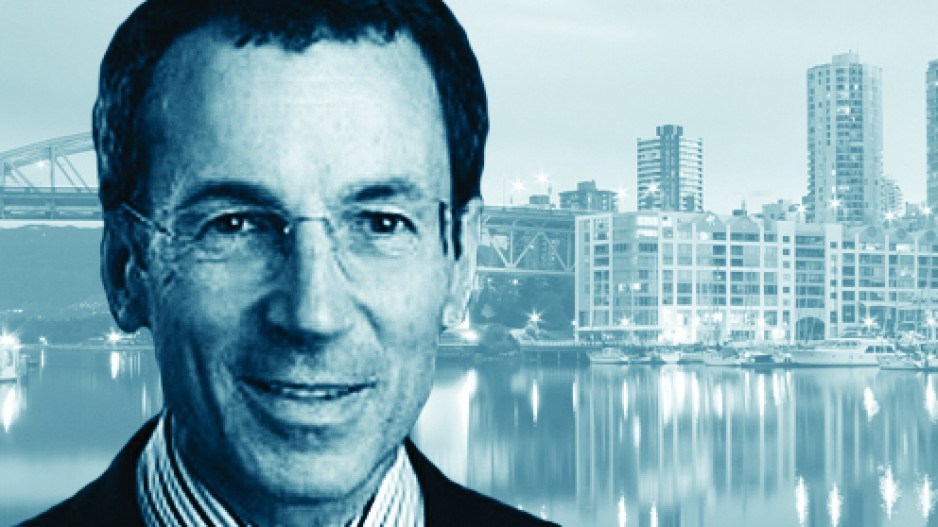While puttering in my garden recently, I overheard a passing cyclist calling out to his friend, “This area used to be affordable.”
They were riding by a large house across from me in Kitsilano that’s been empty for at least two years. It used to have five affordable suites in it. It was bought by a local accountant who lives a few blocks away. For whatever reasons, it has been sitting empty – maybe waiting for permits, maybe just because equity growth trumps all other wealth growth these days so who cares if it’s empty?
Based on a conservative estimate of a $1.5 million increase in value in the past two years, the owner is gaining around $2,000 a day. That cyclist, if he’s earning half the two-person household median income of $75,000 per year, is accumulating taxable income at around 5% of that rate ($104 per day). And he actually shows up at a job and applies himself, contributes to the real economy and the community. And then pays income taxes.
This is an illustration of best-selling author Thomas Piketty’s disturbing contention that capital begets capital, and will, without some manner of income redistribution, stretch the divide between those who have and those who don’t. Capital growth outperforms income growth. To paraphrase an article about Piketty in The Economist, only a burst of rapid economic growth or government intervention will prevent economies from naturally reverting to private wealth accumulating in a few hands atop a relatively rigid class structure. With the world’s richest 62 people now having more wealth than the poorest half of the world’s population, Piketty is clearly onto something.
Gross income inequality undermines almost everything we strive for. U.K. writers Kate Pickett and Richard Wilkinson, authors of The Spirit Level: Why Equality Is Better for Everyone, have decades of data to show that in developed countries, a smaller gap between rich and poor means that everyone has a higher chance of being happier, healthier and more successful. Developed-world societies that have the greatest disparities of income are those that suffer from the lowest social mobility, lowest life expectancy, lowest literacy levels and the highest rates of mental illness, drug and alcohol addiction, imprisonment, violence and lots of other ills – without exception (www.equalitytrust.org.uk).
Yet in Vancouver, real estate bubble apologists say everything is fine because there’s a large pool of first-time homebuyers with access to windfall real estate wealth. People like Andrew Ramlo, vice-president of market intelligence at Rennie Marketing Systems as quoted in Business in Vancouver:
“‘[The] historical metric of sales price to income is totally blown out of the water,’ Ramlo concluded, noting that 42% of B.C.’s first-time homebuyers receive help from their parents. ‘Let’s stop comparing sales prices to average household income, because it’s a fundamentally stupid metric – we can go buy it.’”
What I hear him saying is: if you’re not already on board, take your measly earned income and shove off. If you want more than scraps in Maple Ridge or Powell River, just dial up the bank of Mom and Dad. It’s fundamentally stupid to worry about the majority of people without access to capital because the glass is 42% full.
Enter the NDP-Green alliance and its bundle of platform promises to tilt the market more toward people earning a living from working rather than investing. Their starting point is cracking down on fraud, money laundering and “speculation.” That could mean implementing the NDP’s proposed 2% tax on properties in Metro Vancouver where owners pay little or no provincial income tax, and possibly the Greens’ proposal to double the 15% foreign-buyers tax to 30% and expand it across the province.
But here’s the rub. Some of the lavish spending on affordable units they are promising ($750 million a year for the Greens) will be harder to achieve if the bubbling housing market’s multitude of tax-producing spinoffs disappear.
It isn’t just landed gentry who benefit from a hot housing market. So do governments. But they also pick up the high costs of an increasingly unequal society. •
Peter Ladner ([email protected]) is a co-founder of Business in Vancouver. He is a former Vancouver city councillor and former fellow at the SFU Centre for Dialogue. He is chairman of the David Suzuki Foundation’s board of directors.




